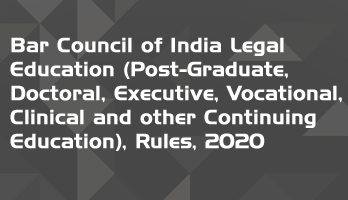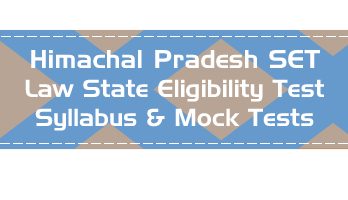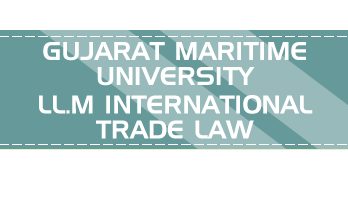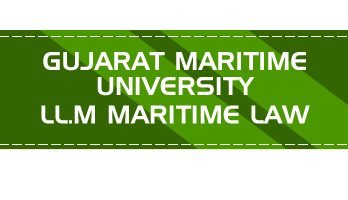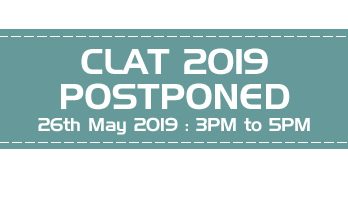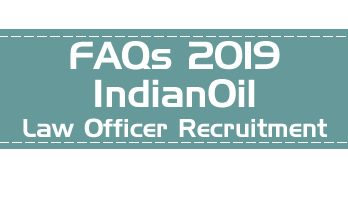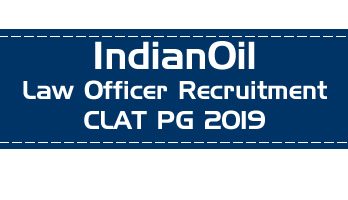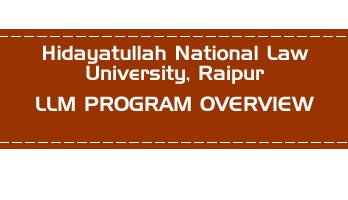Q : Can I, as a corporate lawyer, practice in India with an LLM and not an LLB?
Ans :
No.
In simple steps, if you wish to practice as a Advocate / Lawyer in India :
(1) Complete a full-time LLB recognized by the BCI
(2) Enroll with state Bar council
(3) Start practice as an Advocate
(4) Clear the All India Bar Exam – AIBE within two years of enrollment
(5) If unable to clear – stop practice as a Advocate – continue to attempt AIBE and clear it.
(6) Resume practice as a lawyer.
An LLM alone would not make a person eligible to practice as an Advocate.
Also, while most regular LLM programs have a prerequisite that the applicant should hold a LLB degree, there are some LLM / ML programs that may not need an LLB as the basic degree – In any case, an LLM alone is not enough to practice.
Q : Is there an age limit to do an LLB for 3 years in a regular college in Karnataka State Law University?
Ans :
No.
As of today (20th July ), there is no upper age-limit for LLB admissions – 3 years or 5 years – in any college across India.
While a upper age limit was briefly in-place, it was struck down by the courts.
However, BCI was supposed to appeal the decision and there is no update on the same.
Currently, the Colleges affiliated to the Karnataka State Law university are getting students to fill up a declaration form stating that candidates to the effect that :
“I hereby undertake that, I shall be bound by the final decision of the Hon’ble Supreme Court of India, New Delhi in the Writ Petition (Civil) No. 1023/2016.
My admission shall be subject to the final judgment in the above cited case and the decision of the B.C.I.
If my admission gets cancelled as per the final decision of the Court or B.C.I, then I alone will be responsible for the same. I shall not hold the University responsible for the cancellation of my admission.”
The age limit mentioned in the application form is 20 yrs Gen or 22 yrs SC/ST for 5 year LLB and 30 yrs Gen or 35 yrs SC/ST for 3 year LLB.
If the age limit is reintroduced, it will be applicable on all colleges across India. I don’t believe it will be retrospective, so students already pursuing an LLB should be exempted. However, let’s wait till the case is decided.
Q : What do I have to do for an LLB after 12th?
Ans :
This is edited from some of my previous answers . . .
An LLB can be considered as a ‘Higher Graduation’ degree, which means that though an LLB is a Bachelors degree, you have to be a graduate to take it up.
Though there three year and five year LLB programs available in India, the actual ‘LLB’ part is 3 years.
The 5 year LLB is a ‘dual degree’ program where students will get a BA LLB or BBA LLB or BCom LLB etc. This is meant for candidates who take up Law after 12th or +2.
The 3 year LLB is a pure LLB, where you need to to be a graduate in any stream to be eligible for taking up the 3 year LLB.
In India, there are three ways to taking up an LLB course . . .
[1] Without any entrance exam (3 year / 5 year) – There are many tier-3 and some tier-2 Law Colleges across India, where admission is done on a first-come-first-admitted basis.
No entrance exam. Just meet the minimum criteria in terms of your previous academics and pay the fees.
These are proper colleges, recognized by the Bar Council and have 3 year & 5 year LLB courses, affiliated to various Universities.
They normally will not have any placement process and the other facilities also are quite basic.
But, you will get a proper LLB degree after completing the course.
[2] With entrance exam (3 year / 5 year) – there are tier 2 colleges that have their own entrance exam and in some states there is a common entrance exam for Law Courses across many participating colleges – tier 2 & 3.
For example, the Andhra Pradesh – AP LAWCET, Telangana – TS LAWCET, Kerala CEE , DU Law entrance exam etc.
Bulk of the seats are filled through the exams, but there will usually be a ‘Management quota’ of seats with higher fees in private colleges that participate in these common entrance process.
[3] Through CLAT (5 year only) – CLAT is the common entrance exam for the National Law Schools / National Law Universities across India.
These tier 1 institutes have placement process, superb facilities and the competition for getting admission is also quite tough.
Note : NLU Delhi and HPNLU Shimla do not participate in the CLAT as they have their own separate entrance exams.
So, to answer your question . . . you can definitely do your LLB without CLAT or any other entrance; as long as you meet the minimum criteria.
3 year LLB or 5 year LLB – which one is preferable ?
Let us look at the question from a time point of view.
- BA degree is a 3 year program
- LLB degree is a 3 year program
So if you complete your BA first and then take take up LLB, you will have spent 6 years to obtain your BA + LLB.
An integrated dual-degree 5 year LLB program will give you a BCom / BBA / BA + LLB – so you save one year.
Let us look at the question from a career plan point of view.
If your aspiration is to ultimately pursue a law degree, it makes sense to enrol in a integrated BA LLB program after 12th.
But remember :
– It is a five year commitment, sometimes life happens, plans change etc.
– Then there is a risk of not getting any degree – Depending on the College / University rules, you may not get even a BA degree if you decide to opt-out midway.
If you are not sure of your long term career plans, you should complete your graduation first and then decide on a MBA / LLB at a later date.
Let us look at the question from an employment prospects point of view
If you intend to pursue a BA + LLB, i.e. an integrated five year course, the National Law Schools (National Law Universities) score above regular Universities in terms of campus placements and corporate career opportunities.
The best law firms from across India come to recruit from the NLU campuses; whereas graduates from other Universities will not have the same advantage.
A 5 year LLB graduate from a regular University will be treated by recruiters as on par with a 3 year LLB graduate from same / similar Universities.
[* Some University Law Colleges do have campus placements, but they typically do not attract the Tier-1 law firms]
Bottom-line : The BA or BA + LLB decision really depends on your long term career aspirations and personal preference.
BA+LLB saves you one year, but it requires a five year commitment.
Completing a BA first will give you an opportunity to choose between MBA / LLB / taking up employment after graduation.
If BA+LLB is your decision, aim for the National Law Schools and the Top colleges in India to get the maximum ROI from your degree from an employment perspective.
If independent practice is your goal, it doesn’t matter where and how you complete your LLB. You PR management, contacts and business development skills will be the key to success.
Q : Is Andhra University recognised all over India?
Ans :
Yes.
- It is a UGC recognized University
- It is also ranked at 22 in the National Institutional Ranking Framework by the Ministry of Human Resource Development in the ‘Universities’ category.
Thanks for the A2A.
Q : Is it mandatory to study all the electives for paper III management for the UGC NET?
Ans :
Yes. Because there is no Paper III now . . .
From June onward, the pattern of the UGC NET exam has been changed.
There are only two papers, the General Paper I and the subject specific Paper II. Paper I is common for all and Paper II is for the subject you choose.
Both papers are objective and Paper I has 50 questions of two marks each and Paper II will have 100 questions of two marks each.
Paper III has been removed / clubbed into Paper II. The length of Paper II has been increased from the previous 50 questions to the current 100 questions.
The syllabus of the current Paper II includes the previous Papers II and III; including the electives.
The same holds good for the state level SET exams as well; since they follow the UGC NET model.
Q : Can I change my signature after 10th exam?
Ans :
Yes you can . . .
Signatures can be changed at any time; and even change naturally over the years.
The only problem would be that people may insist that your signature should match with whatever is on their records; to authenticate your instructions.
In such a situation, you will have to produce some additional ID proofs and update your signature.
Ideally, there should be at least one current Photo ID document which has your latest signature. e.g. Passport / PAN card / DL – documents which have your signature + your photo.
For example, I opened an in an MNC bank in the late 90’s. My signature was quite different then.
Recently I went to the bank to submit some documents and there was a signature mismatch. So I had to submit ID proofs and update my signature before proceeding.
TLDR summary; Yes, you can change your signature at any time; just ensure that at least one of your ID docs has the latest signature; to ensure easier updating from your old to new signature.
Q : What is MPa, Ckg, and fm²?
Ans :
MPa – Mega pascal – is a SI unit for pressure. 1 mega pascal equals 10 bar.
C/Kg – Coulomb per kilogram – is a SI unit for exposure to ionizing radiation.
Fm² – Square Femtometer – is a SI unit for measuring area.
Q : Is a 3-year LLB going to end soon?
Ans :
Nope . . .
LLB is a 3 year degree.
The 5 year LLB is a ‘dual degree’ program where students will get a BA LLB or BBA LLB or BCom LLB etc.
The actual ‘LLB’ parts in the 3 year program and the 5 year program are essentially the same.
In most universities offering both the programs, the subjects and question papers + exams are same – since both programs are based on the standard LLB syllabus prescribed by the BCI.
The 3 year LLB requires a person to be a graduate before taking up LLB; whereas the 5 year LLB can be taken up after +2.
Both courses are equally popular and I don’t see the 3 year LLB going away anytime soon.
Most regular Law colleges have a 3 year LLB; whereas tier I and tier II colleges have 5 year programs.
As of 13th July , there is no upper age limit for either the 3 year or the 5 year LLB.
Q : How many years after 10th to become a certified lawyer? What courses do we have to choose?
Ans :
This is adapted from one of my other answers . . .
In simple steps, if you wish to practice as a Advocate / Lawyer in India :
(1) Complete LLB (3 years or 5 years)
(2) Enroll with state Bar council
(3) Start practice as an Advocate
(4) Clear the All India Bar Exam – AIBE within two years of enrollment
(5) If unable to clear – stop practice as a Advocate – continue to attempt AIBE and clear it.
(6) Resume practice as a lawyer.
If you don’t intend to practice and you are involved in any other business or in full time employment, you can skip the AIBE.
After 10th . . .
You need to complete your +2 in any stream; after that you have two choices,
- you can either write entrance tests like the CLAT, AILET etc. and take up the five year LLB
- or take up graduation in any stream and join a 3 year LLB after your graduation.
The advantage with option 1 is that you will get a dual degree; i.e. BA LLB or BBA LLB etc. in 5 years and save 1 year.
The disadvantage with option 1 is that it is a 5 year commitment and if you change your mind midway or have to discontinue even after 4 years, you will not get any degree.
The advantage with option 2 is that you can choose to graduate in any stream, instead of having to choose whatever is offered by the college. i.e. you can graduate in BE, MBBS, BTech, BBA – any stream of graduation; and then join LLB.
The disadvantage with option 2 is that you will spend an additional year in acquiring your LLB and also that the 3 year LLB is offered mostly by Tier 2 and Tier 3 colleges; the NLUs and Tier-1 institutes have a 5 year LLB. Tier 2 and 3 colleges usually don’t have any campus placements.
What I would suggest . . .
- Complete 10th
- Complete +2 with good marks
- Appear for CLAT / AILET / HPNLET and other entrance exams for a 5 year LLB
- If you get through, you will complete the course in 5 years
- Else, take up regular graduation in any stream
- Join 3 year LLB after you graduate
To answer your question . . .
The minimum academic time required to be come a Lawyer in India, after 10th will be :
2 + 5 = 7 years (5 year LLB)
or
2 + 3 + 3 = 8 years (Regular Graduation + 3 year LLB)
or
2 + 4 + 3 = 9 years (BE / BTech + 3 year LLB)
or
2 + 5 + 3 = 10 years (MBBS + 3 year LLB)
*Add 2 more years if you decide to take up a 5 year LLB after graduation.
Now the details . . .
To complete an LLB, you can :
- directly get an admission into the 3 year course in a Tier 3 college ( if you are a graduate and meet the minimum academic requirements)
- directly get admission into the 5 year integrated LLB in a Tier 3 college (if you have completed your +2 and have the minimum marks)
- go through an entrance exam and get into a Tier II or Tier I Law College (rest of the requirements are same)
Note: At this time, there are no restrictions in terms of age limit for LLB admission, or any restrictions on attempts or age limit for taking up the AIBE.
Q : Is Paper 3 of the UGC-NET subjective or objective for commerce?
Ans :
There is no Paper III now . . .
From June onward, the pattern of the UGC NET exam has been changed.
There are only two papers, the General Paper I and the subject specific Paper II. Paper I is common for all and Paper II is for the subject you choose.
Both papers are objective and Paper I has 50 questions of two marks each and Paper II will have 100 questions of two marks each.
Paper III has been removed / clubbed into Paper II. The length of Paper II has been increased from the previous 50 questions to the current 100 questions.
Overall, the length of the exam has been reduced by 25 questions (50 + 50 + 75 to 50 + 100)
A little bit of history . . .
Once upon a time, Paper III was a subjective – essay type paper. In 2012, Paper III was converted to a Objective type.
This meant that there were two objective type papers (II and III), which were based on the same / similar syllabus, leading to a overlap. Besides, logistically it made no sense.
However, the Paper III model continued till , when UGC decided to make things simpler by merging Paper III into the current Paper II.
Q : What do college professors do with the submitted assignments? Do they burn it or dump it in the garbage? If they know about the copy and paste phenomenon, then why do they give assignments?
Ans :
If they know about the copy and paste phenomenon, then why do they give assignments ?
In many LLB colleges, all the assignments and submissions have to be hand-written.
For subjects like ‘Drafting, Pleading & Conveyancing’ , students have to write almost 100 – 125 pages on Legal Green Sheets.
Though the basic material is available on the net, you still have to take the effort of reading through it and copying it in your own handwriting – which actually helps in better retention.
The ‘viva’ part consists of questions based on what you have written – so teachers are ensuring that all students will pay some attention to what they are writing.
Though I prefer typing to writing any day, I still appreciated the insistence on the handwritten submissions; else it would just be a copy-paste exercise.
While assignments are prescribed with the best intentions; if students decide to do a ‘copy-paste’ job, then that’s a lost learning opportunity.
In the bigger Institutes (IIMs, IITs etc.) and in almost all foreign Universities where soft-copy submissions are the norm; professors will use a software like ‘Turnitin’, which does a plagiarism check; so copy-paste jobs are detected and weeded out.
What do college professors do with the submitted assignments? Do they burn it or dump it in the garbage?
Normally, the Professors will turn over all the submissions and records to the college, which will store them for a few years – based on their record retention policies and how much of a storage space they have.
Sometimes Universities also prescribe some record retention policies for all affiliated colleges – which is helpful if there is any discrepancy and documentary evidence is required for an audit trail.
For example, colleges might decide to retain submissions for the course completion time + the additional time allowed to pass all the papers. E.g. Submissions & records that are older 6 years might be disposed off for recycling.
Q : What will happen to the UGC NET / SET if UGC is dissolved?
Ans :
It will continue . . .
The NET is conducted as a standardized ‘equalizing’ exam for JRF (Junior Research Fellowship) and also for qualifying to be considered for Assistant Professor roles across India.
While the UGC may be dissolved, the underlying need for a standardized exam will still continue.
Also, if the other proposals of allowing more autonomy to Universities is also implemented, they can design their own syllabus for many courses – which will mean that there might be significant variations in the same degree across Universities.
Hence, a standardized exam will be essential to ensure that all candidates are evaluated on the same scale.
The UGC NET will not go away. It will just be renamed as HEC NET or something like that; it may become a completely computer-based exam at some point; and it may even be administered all through the year – like the GMAT; but the exam will continue to exist.
Q : Is lateral entry allowed in a 5-year integrated LLB course?
Ans :
No.
To clarify on what Lateral Entry means; As defined in the BCI Legal education rules :
(xiv) “Lateral Entry” is an admission given to graduate applicants at the beginning of third year in an integrated Five Year Course.
(xv) “Lateral Exit” means opting out at the end of three year after successfully completing the courses up to the third year, from an Integrated Five year course on being awarded a Bachelor degree.
Rule number 13 of the CHAPTER II – Standards of Professional Legal Education
13. Prohibition against lateral entry and exit
There shall be no lateral entry on the plea of graduation in any subject or exit by way of awarding a degree splitting the integrated double degree course, at any intermediary stage of integrated double degree course.
So, lateral entry is not allowed as per the above.
Q : Can I attempt all the questions of the UGC NET because there is no negative marking?
Ans :
Yes, absolutely yes !
That is a strategy that I strongly recommend ! i.e. answer all questions.
With four answer choices, one of which will be correct, you have a 25% chance of marking a correct answer.
Which would mean that even if you blindly guess the answer for four questions, you will get one correct (probability).
You might even score more, if luck is on your side; however, since there is no negative marking, you will anyway not lose any marks.
On the other hand, if you skip questions and leave them unanswered, you will not gain anything.
So, try to guess the correct answers for questions that you are not sure about; else, just pick a random choice and answer all questions.
Even if there was a 0.25 mark negative marking for wrong answers, I would still recommend answering all questions. Since the probability is one out of four, even if I randomly answer one question correctly, I get one mark.
For the wrong questions, I would get 0.25 minus marks (2 x 0.25 = 0.75), which would mean that by guessing the answer, there is still a probability of me scoring 0.25 marks. ( 1 x 1 minus 0.75 x 3 )
Moreover, if a question is deemed to have two or more correct answers, you will have a better probability, since marks will be awarded to either of the choices.
If a question warrants grace marks, all candidates who answered the question may get a mark.
So answer all questions !
Q : How many papers are in the UGC NET for July ?
Ans :
Two Papers . . .
There will be two papers, the General Paper I and the subject specific Paper II.
Paper I is common for all and Paper II depends on the subject you choose.
Both papers are objective and Paper I has 50 questions of two marks each and Paper II will have 100 questions of two marks each.
Paper III has been removed / clubbed into Paper II. The length of Paper II has been increased from the previous 50 questions to the current 100 questions.
Overall, the length of the exam has been reduced by 25 questions (50 + 50 + 75 to 50 + 100)
If you are asking about the number of subjects . . .
Overall there are 99 subjects for which the UGC NET is being conducted.
While mostly Humanities, Languages and some Applied Sciences are covered in the UGC NET, the pure sciences are covered in the CSIR NET.
Q : What are the most reputed universities in India?
Ans :
Rankings are quite subjective . . .
Though there are several private rankings that are published by new-papers, magazines, career-websites etc. I am personally quite skeptical about the validity of the rankings.
Since they will have commercial considerations as a priority, objectivity might take a back-seat to advertising revenue. Also, the data collection, evaluation criteria, evaluation parameters, weightage etc. are usually not transparent.
Currently, I would prefer to go with the Ministry of HRD – NIRF (National Institutional Ranking Framework) rankings that are available on the website mentioned below.
There are several categories : Overall, Universities, Colleges, Engineering, Management, Pharmacy, Medical, Architecture and Law.
Q : Is it worthwhile to pursue a LLM degree from abroad after completing LLB from India?
Ans :
Depends on what is your intention . . .
I have answered a couple of similar questions in the past and the short answer would be – Financially, it doesn’t seem to be a lucrative / attractive proposition to complete an LLM degree from a foreign country.
Because :
[1] An LLM degree in a country like UK, will work out to INR 20 ~ 30 Lakhs per year, depending on the college + fees + cost of living etc.
[2] The LLM degree does not allow you to practice law in that country – since you will need to have a Baccalaureate degree and clear the bar exam there. (The equivalence process is usually not favorable towards Indian LLB degree)
[3] While a foreign LLM degree may have a nice ring to it, it does not provide any additional / practical value in India. An Indian LLM degree is significantly more valuable and relevant.
However, LLM from abroad can be useful, if it is in a relatively niche area like Maritime Law, that may not have too many Institutes offering the course in India.
My suggestion . . .
Education is never bad. A good course always adds to your growth as a person; even if the ‘ROI’ of the course seems to be low – since ROI is not always measurable in terms of money.
So, if you are anyways going abroad for any other reason and staying there for a few years, taking up an LLM would be good.
If you have adequate financial backing and intend to experience living and studying in a foreign country; you should take it up.
If your intention is purely to add some additional degrees after your name or to study-for-knowledge without worrying about placements etc. An LLM from anywhere will be good.
But if your intention is to study and come back to India; it would be preferable to take up an LLM in India from one of the NLUs or Tier 1 / 2 institutions.
Thanks for the A2A.
Q : Can a person take up an LLM after enrolling in a bar in India?
Ans :
Yes.
Previously, if a practicing Advocate intended to take up study of a LLM course, they had to get their enrollment status changed to ‘suspended’ for the duration of the course.
This would affect the Advocate’s ability to earn a livelihood, even if he intended to practice for a few hours after the official timings of the course; or on holidays and weekends.
The period of suspension would also mean that seniority would get affected for various purposes.
Since 2010, the rules have been changed by the Bar Council of India (BCI) allowing practicing Advocates to join LLM Courses as Regular Students without suspending the practice.
So, the answer is Yes. Practice + LLM can be done in parallel.
Thanks for the A2A.
Q : What is the age limit to appear for the NET / SLET exam?
Ans :
None . . .
Let me explain.
The NET is conducted for JRF (Junior Research Fellowship) and also for qualifying to be considered for Assistant Professor roles.
For JRF alone, there is a upper age limit of 28 years for General Candidates and relaxable by up to 5 years for reserved categories candidates.
For UGC NET Law candidates, even General candidates will get a relaxation of 3 years if they have a LLM degree.
(This is because LLB is already a ‘Higher Bachelors Degree’, where you have to be a graduate in any stream to get a LLB.)
In any case, the total age limit will be limited to 5 years max.
For NET Assistant Professor qualification – there is no upper limit.
So, unless you are interested only in the JRF, technically, there is no upper age limit for the UGC NET exam.
Coming to the SLET and the SET exams conducted by different states e.g. KSET, MHSET, TNSET etc. These exams are conducted only for Assistant Professor qualification and there is no JRF through the SLET / SETs.
Therefore, the official rules clearly state :
Age limit and number of chances
(i) There is no age limit.
(ii) A candidate can avail any number of chances.
So, there is no upper age limit for the SLET / SET exams.
Q : Is the UGC NET exam a descriptive type?
Ans :
No.
The UGC NET is completely objective type since June 2012.
Prior to June 2012, the Paper III was a subjective / essay type exam.
However, in June 2012, Paper III was made into an objective type paper.
Now, this lead to a situation where there was a lot of overlap between Papers II and III. Since both were based on almost the same syllabus and both were objective type.
In , the pattern has been changed to :
[1] Remove Paper III
{2} Extend the length of Paper II from 50 to 100 questions.
Overall, the length of the UGC NET exam has been reduced by 25 questions. (Currently Paper II = 100 Qs vs Previously Paper II = 50 Qs + Paper III = 75 Qs adding up to 125 Qs)
The general Paper I remains unchanged.



